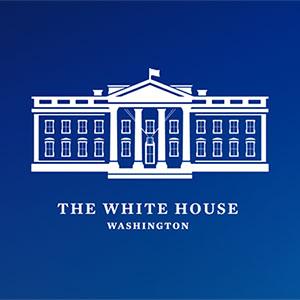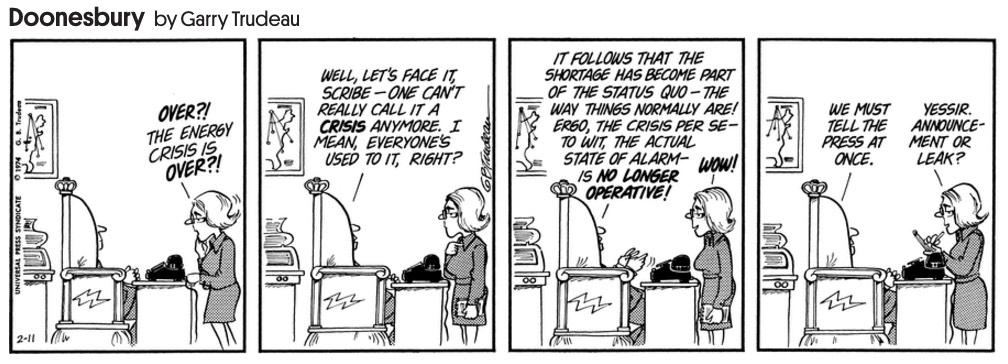And there it is: COVID Public Health Emergency to end on May 11th. Here's what that means for you

Yesterday evening, the Health & Human Services Office of Intergovernmental & External Affairs sent out this notice from the Biden Administration:
STATEMENT OF ADMINISTRATION POLICY
- H.R. 382 – A bill to terminate the public health emergency declared with respect to COVID-19 (Rep. Guthrie, R-KY, and 19 cosponsors)
- H.J. Res. 7 – A joint resolution relating to a national emergency declared by the President on March 13, 2020 (Rep. Gosar, R-AZ, and 51 cosponsors)
The COVID-19 national emergency and public health emergency (PHE) were declared by the Trump Administration in 2020. They are currently set to expire on March 1 and April 11, respectively. At present, the Administration’s plan is to extend the emergency declarations to May 11, and then end both emergencies on that date. This wind-down would align with the Administration’s previous commitments to give at least 60 days’ notice prior to termination of the PHE.
To be clear, continuation of these emergency declarations until May 11 does not impose any restriction at all on individual conduct with regard to COVID-19. They do not impose mask mandates or vaccine mandates. They do not restrict school or business operations. They do not require the use of any medicines or tests in response to cases of COVID-19.
However, ending these emergency declarations in the manner contemplated by H.R. 382 and H.J. Res. 7 would have two highly significant impacts on our nation’s health system and government operations.
The House GOP appears to be effectively forcing the Biden Administration's hand here...but they aren't the only ones.
First, an abrupt end to the emergency declarations would create wide-ranging chaos and uncertainty throughout the health care system — for states, for hospitals and doctors’ offices, and, most importantly, for tens of millions of Americans. During the PHE, the Medicaid program has operated under special rules to provide extra funding to states to ensure that tens of millions of vulnerable Americans kept their Medicaid coverage during a global pandemic.
In December, Congress enacted an orderly wind-down of these rules to ensure that patients did not lose access to care unpredictably and that state budgets don’t face a radical cliff. If the PHE were suddenly terminated, it would sow confusion and chaos into this critical wind-down. Due to this uncertainty, tens of millions of Americans could be at risk of abruptly losing their health insurance, and states could be at risk of losing billions of dollars in funding.
Additionally, hospitals and nursing homes that have relied on flexibilities enabled by the emergency declarations will be plunged into chaos without adequate time to retrain staff and establish new billing processes, likely leading to disruptions in care and payment delays, and many facilities around the country will experience revenue losses. Finally, millions of patients, including many of our nation’s veterans, who rely on telehealth would suddenly be unable to access critical clinical services and medications. The most acutely impacted would be individuals with behavioral health needs and rural patients.
Second, the end of the public health emergency will end the Title 42 policy at the border. While the Administration has attempted to terminate the Title 42 policy and continues to support an orderly lifting of those restrictions, Title 42 remains in place because of orders issued by the Supreme Court and a district court in Louisiana. Enactment of H.R. 382 would lift Title 42 immediately, and result in a substantial additional inflow of migrants at the Southwest border. The number of migrants crossing the border has been cut in half, approximately, since the Administration put in place a plan in early January to deter irregular migration from Venezuela, Cuba, Nicaragua, and Haiti.
The Administration supports an orderly, predictable wind-down of Title 42, with sufficient time to put alternative policies in place. But if H.R. 382 becomes law and the Title 42 restrictions end precipitously, Congress will effectively be requiring the Administration to allow thousands of migrants per day into the country immediately without the necessary policies in place.
The Administration strongly opposes enactment of H.R. 382 and H.J. Res. 7, which would be a grave disservice to the American people.
As noted previously, some COVID-19 pandemic policies were already scheduled to end earlier than May 11th; in particular, the Medicaid Continuous Coverage requirement is set to end starting April 1st, which means millions of people who have been kept on the Medicaid roles even though they may not be eligible anymore will begin to have their coverage cancelled.
Otherwise, the Kaiser Family Foundation has posted a useful guide to what the additional real world consequences will be of having the remaining PHE policies expire on May 11th:
Coverage, Costs, and Payment for COVID-19 Testing, Treatments, and Vaccines:
Millions of people have received free COVID-19 testing and testing-related services, certain treatments, and vaccines during the § 319 PHE, but not all of these items will continue to be free when the PHE ends.
For people without insurance:
There will no longer be a pathway through Medicaid for free COVID-19 testing, vaccines, or treatment.
For Medicare beneficiaries:
Cost sharing requirements will apply for at-home tests, testing-related services, and all COVID-19 treatments when the § 319 PHE ends. Coverage of COVID-19 vaccines will continue at no cost due to statutory changes made by the CARES Act that added coverage of COVID-19 vaccines to Medicare Part B. Clinical diagnostic testing is also covered at no cost.
Based on changes in the CAA 2023, Medicare Part D plans are allowed to cover oral antivirals authorized for use by the FDA under an EUA, and when the US government-purchased supply of oral antivirals is depleted, or if Part D enrollees receive oral antivirals that are not obtained from the federally-purchased supply, Medicare Part D enrollees are expected to face varying cost sharing amounts for these treatments, since cost sharing varies across Part D plans.
For Medicaid and CHIP enrollees:
Coverage of COVID-19 vaccines will continue as a mandatory benefit for both children and adults.
Once the coverage period mandated by ARPA ends, treatments that have FDA approval will be covered, but could be subject to cost sharing. However, coverage of treatments that are still under emergency use authorization (EUA) and do not have FDA approval will vary by state.States will continue to cover COVID-19 tests that are ordered by a physician and provided in an office or similar setting. Coverage of tests provided without a physician’s order, including at-home tests, will vary by state.
Privately insured individuals:
...Could incur additional out-of-pocket costs for tests and related services when the § 319 PHE ends.
The vast majority of people with private insurance will continue to have coverage of COVID-19 vaccines at no cost from in-network providers, due to the Affordable Care Act (ACA) and statutory changes made by the CARES Act.
People with private insurance who receive COVID-19 vaccines, including booster doses, from out-of-network providers could incur out-of-pocket costs when the federally purchased supply of vaccines is depleted.
Because there is no federal law specifically addressing how COVID-19 treatment should be covered by private insurance, there would be no change with the end of the § 319 PHE.
The KFF explainer also goes into other changes, including:
- Medicaid Coverage and Federal Match Rates
- Telehealth
- Medicaid/CHIP flexibilities
- Medicare payment/coverage flexibilities
- Private insurance coverage flexibilities
- Access to medical countermeasures (Paxlovid/etc)
- Liability immunity to administer medical countermeasures
I don't know how to feel about this myself.
On the one hand, they weren't going to keep the PHE going forever, and with the GOP now having control of the House, there's zero chance that they'll agree to any further pandemic-related legislation aside from ending pandemic-related legislation (such as the bill and resolutions noted in the WH press release above) anyway. Honestly, my guess is that the WH wouldn't be declaring the May 11th date unless they thought there was a chance of HR 382 passing the Senate as well, with at least two Democratic Senators agreeing to it (and I don't just mean Manchin & Sinema).
On the other hand, as Dr. Peter Hotez noted:
I get the political/financial pressures for this, but at 500 deaths/day Covid remains devastating public health threat. Maybe we’ll see other side of XBB soon but could we see a new variant from China? And what about immunocompromised? Still lots happening.
Then there's this from the World Health Organization:
Covid-19 remains a global health emergency, the World Health Organization said on Monday, but it acknowledged the pandemic is at a “transition point.”
WHO’s International Health Regulations Emergency Committee discussed the pandemic on Friday at its 14th meeting on Covid-19, and Director-General Tedros Adhanom Ghebreyesus concurred that the public health emergency of international concern, or PHEIC, declaration should continue.
In a statement released on Monday, WHO’s advisory committee said it urged WHO to propose “alternative mechanisms to maintain the global and national focus on COVID-19 after the PHEIC is terminated.”
What the heck does that mean? It's a bit vague:
“Achieving higher levels of population immunity globally, either through infection and/or vaccination, may limit the impact of SARS-CoV-2 on morbidity and mortality, but there is little doubt that this virus will remain a permanently established pathogen in humans and animals for the foreseeable future. As such, long-term public health action is critically needed,” the committee said in a statement on Monday. “While eliminating this virus from human and animal reservoirs is highly unlikely, mitigation of its devastating impact on morbidity and mortality is achievable and should continue to be a prioritized goal.”
In a list of temporary recommendations, Tedros said countries should continue vaccinating people and incorporate Covid-19 vaccines into routine care; improve disease surveillance; maintain a strong health care system to avoid a “a panic-neglect cycle”; continue to fight misinformation; and adjust international travel measures based on risk assessment.
In any event, the die has been cast. Let's pray this doesn't blow up in our faces.




